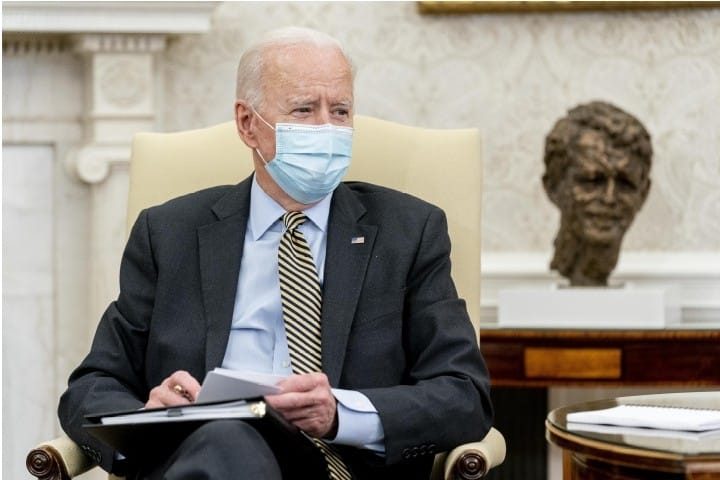
President Joe Biden has signed an executive order creating a commission to study possible changes to the U.S. Supreme Court. The new commission would be convened at a time when leftists are pushing to expand the high court to include more than its current nine judges, in hopes of creating a liberal majority.
The new commission will consist of no more than 36 presidential appointees made up of “distinguished constitutional scholars, retired members of the Federal judiciary, or other individuals having experience with and knowledge of the Federal judiciary and the Supreme Court of the United States.”
The new commission would seem to be a promise kept, which Biden made to leftists following the death of Justice Ruth Bader Ginsburg in October. Biden told 60 Minutes in October that he hoped to create such a commission on reforms to the court system because, in his words, it was “getting out of whack.”
The announcement comes just days after Justice Stephen Breyer, considered to be one of the staunch liberals on the court, came out and issued a stern warning against attempts to “pack the court” with more liberal judges.
Speaking at Harvard Law School on Tuesday, Breyer said: “Discussion of institutional change should include discussion of certain background matters such as the trust the court has gradually built. The long period of time needed to build that trust.”
Breyer continued: “These considerations convince me that it is wrong to think of the court as just another political institution and it is doubly wrong to think of its members as junior league politicians.”
“Structural alteration [of the Supreme Court] motivated by the perception of political influence can only feed that … perception, further eroding that trust,” Breyer said.
Breyer’s remarks prompted many left-wing pundits to call for his retirement. MSNBC’s Mehdi Hasan called Breyer’s opinion, “naive, misguided and self-serving.”
The list of names who have been floated for the new commission tilt decidedly to the left, even though Biden has said that the commission will be bi-partisan. The two chairs of the commission have been announced as Bob Bauer, who served as White House Counsel under Barack Obama, and Cristina Rodriguez, who was a member of the Council on Foreign Relations and clerked under Sandra Day O’Connor.
The list of commissioners invited to join the commission so far includes many law professors, former Supreme Court clerks, and Ivy Leaguers such as Caroline Fredrickson, once a legal director for NARAL Pro Choice America; Walter Dellinger, who served in the White House as the head of the Office of Legal Counsel during the Clinton administration; and Michael Waldman, who served as the director of speech-writing for Bill Clinton.
In the past, Biden has dismissed the idea of court packing as a “bonehead idea,” but last October, Biden promised to create the commission after leftists were apoplectic over Donald Trump’s nomination of Amy Coney Barrett to the seat left vacant by prominent liberal Ruth Bader Ginburg’s death.
During the latter stages of the presidential 2020 campaign, Biden was asked what his position on court packing was, to which he replied, “You’ll know my position on court packing after the election.” But the president has still not said yay or nay on the issue.
Of course, there’s a real possibility that this commission will meet for its scheduled 180 days and conclude that expanding the Supreme Court is not a good idea. And even if the commission does recommend expansion, there would be a huge fight in the legislature before any expansion could occur.
And at least one Democrat senator, Joe Manchin of West Virginia, has already vowed to block any attempt to pack the court in the Senate, calling it, along with ending the filibuster, “crazy stuff.”
But besides court packing, the commission will be studying the role of the Supreme Court and the entire Federal court system and whether it needs to be “reformed,” presumably in ways beyond court packing. Even if the commission doesn’t recommend court packing as leftists hope, their conclusions on the court and its role going forward warrant close scrutiny.
“It’s not about court packing,” Biden said to 60 Minutes in October of 2020. “There’s a number of other things that our constitutional scholars have debated, and I’ve looked to see what recommendations that commission might make.… There’s a number of alternatives that go well beyond packing.”
And those “alternatives” might just be as frightening — if not more frightening — than court packing.




